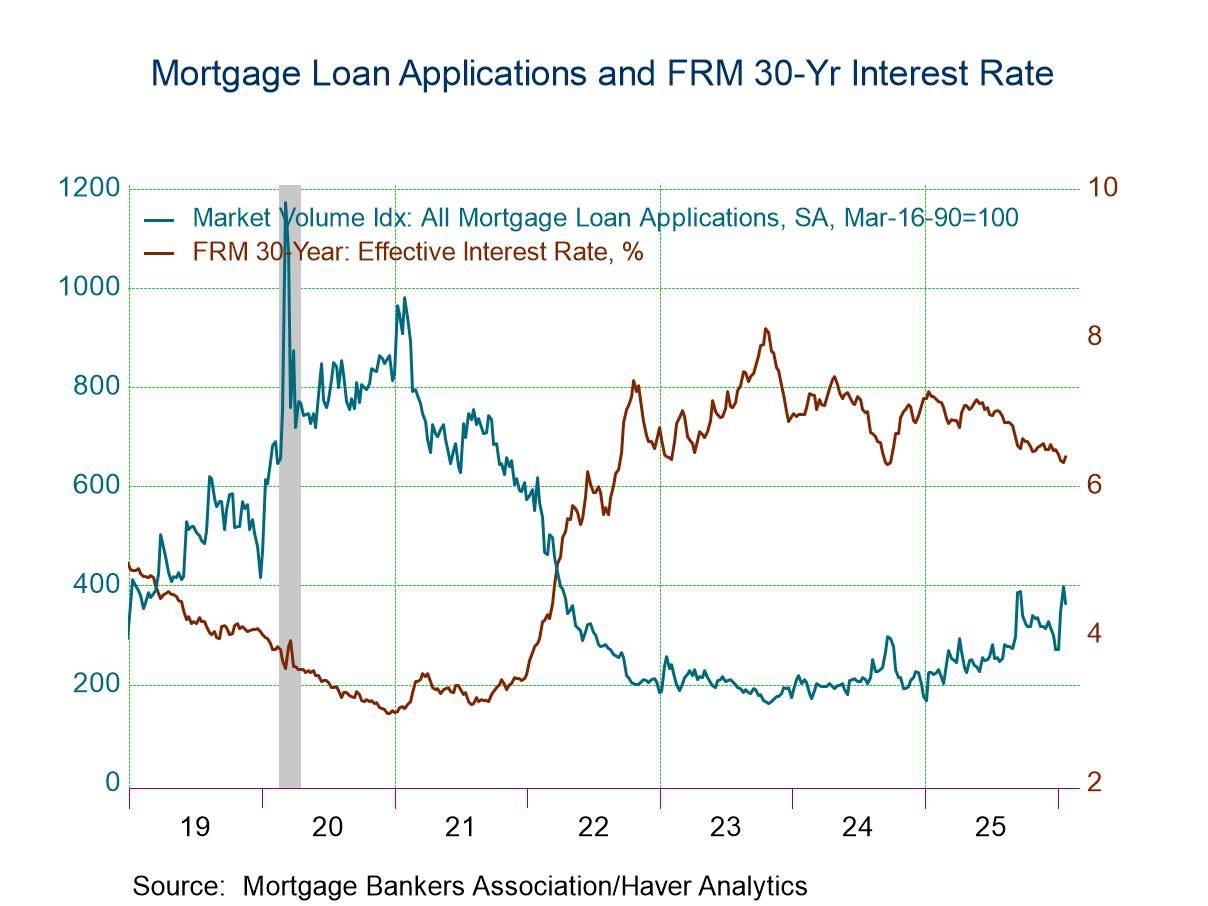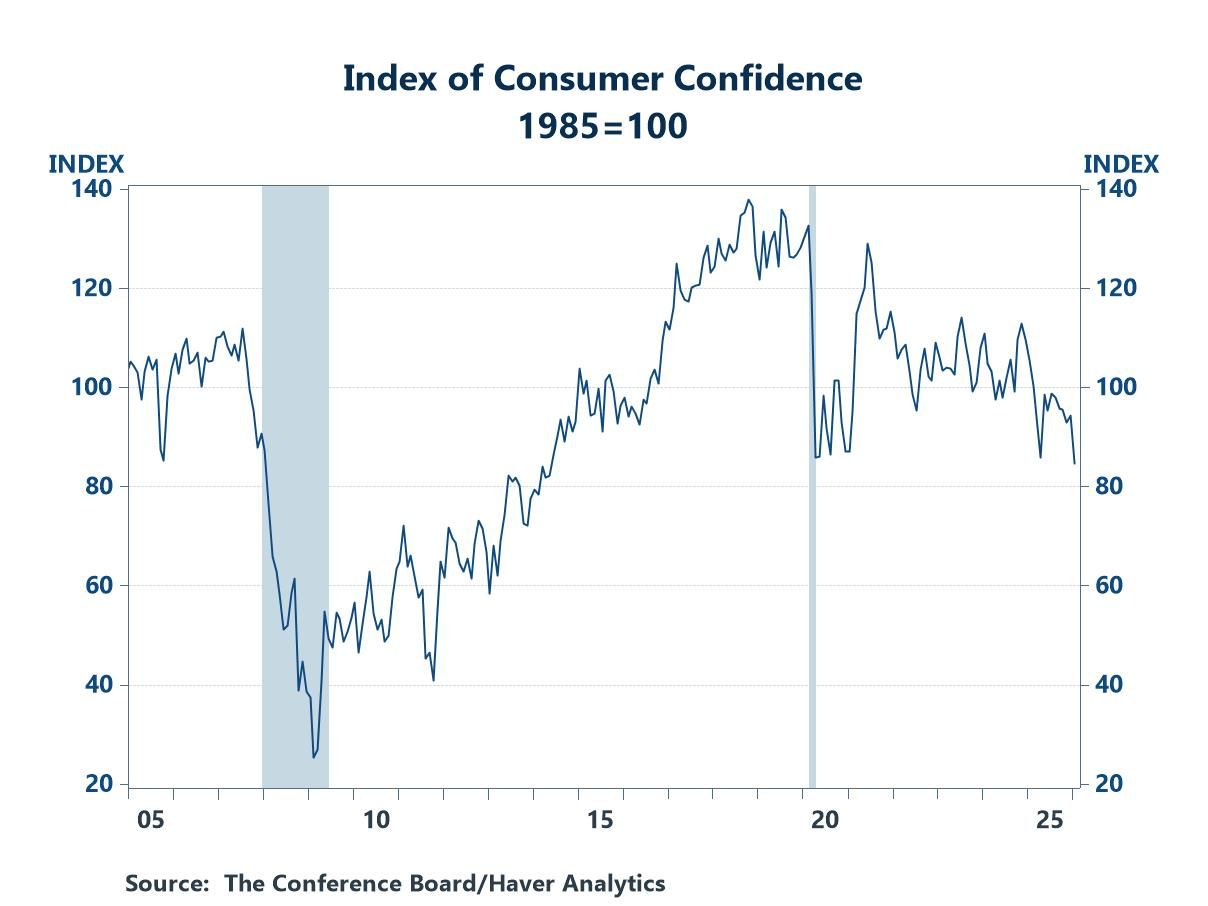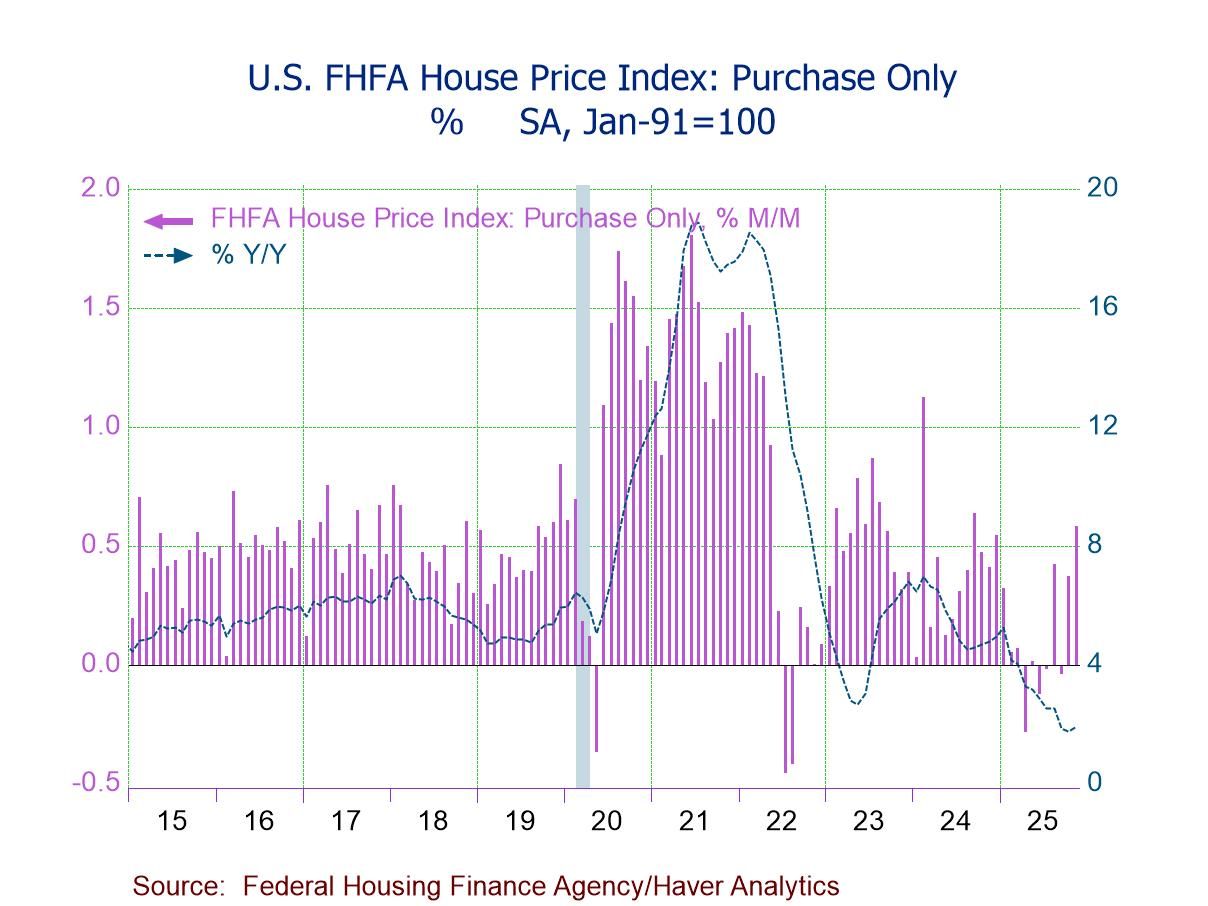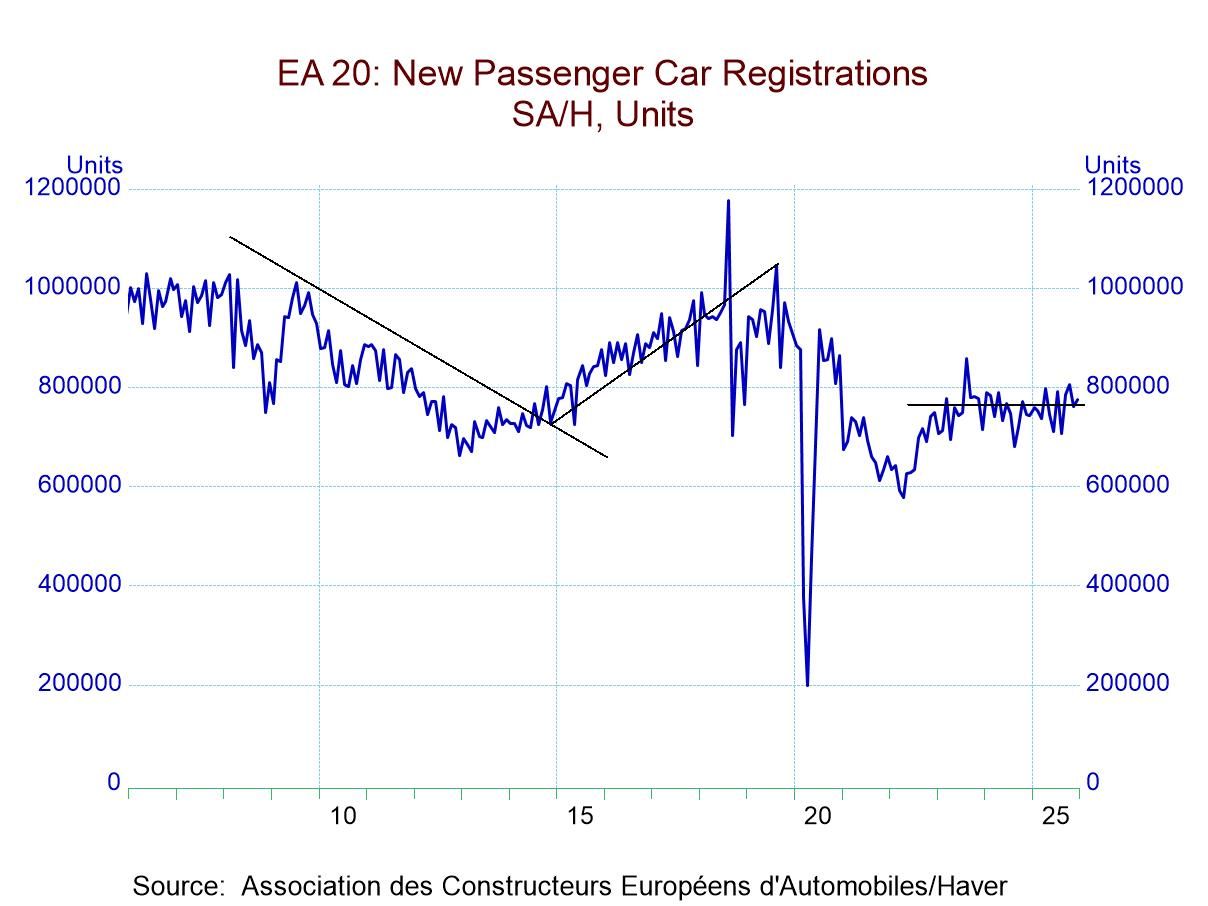U.S. Goods Trade Deficit Continues to Narrow in August
by:Tom Moeller
|in:Economy in Brief
Summary
- Deficit is lowest since October 2021.
- Exports ease for third straight month.
- Imports drop for fourth month in last five.


The advance estimate of the U.S. international trade deficit in goods narrowed to $87.3 billion in August from $90.2 billion in July. It was the shallowest deficit since last October. The deficit reached a peak of $125.7 billion in March of this year. An $89.0 billion deficit had been expected by the Action Economics Forecast Survey. Exports of goods declined 0.9% during August (+20.8% y/y) while imports fell 1.7% (+13.1% y/y).
The falloff in exports last month reflected an 8.9% drop (+10.7% y/y) in exports of autos & auto parts. Industrial supplies & materials weakened 3.5% (+29.8% y/y). Auto & auto parts exports fell 8.9% (+10.7% y/y). Working higher, nonauto consumer goods exports rose 8.0% (16.0% y/y). Exports of "other" goods surged 4.8% (37.1% y/y). Exports of foods, feeds & beverages gained 0.8% (24.6% y/y) while capital goods exports rose 0.4% (10.7% y/y).
The August import decline was led by a 6.9% drop (+17.7% y/y) in industrial supplies & materials imports. Capital goods imports declined 1.8% (+13.2% y/y) while nonauto consumer goods imports eased 0.2% (+7.9% y/y). To the upside, auto & parts imports gained 3.8% (22.9% y/y) while imports of foods, feeds & beverages rose 2.4% (11.7% y/y). Imports of "other" goods rose 1.0% (-5.9% y/y).
The advance international trade data can be found in Haver's USECON database. The expectation figure is from the Action Economics Forecast Survey, which is in AS1REPNA.
Remote Work and Housing Demand from the Federal Reserve Bank of San Francisco is available here.
Tom Moeller
AuthorMore in Author Profile »Prior to joining Haver Analytics in 2000, Mr. Moeller worked as the Economist at Chancellor Capital Management from 1985 to 1999. There, he developed comprehensive economic forecasts and interpreted economic data for equity and fixed income portfolio managers. Also at Chancellor, Mr. Moeller worked as an equity analyst and was responsible for researching and rating companies in the economically sensitive automobile and housing industries for investment in Chancellor’s equity portfolio. Prior to joining Chancellor, Mr. Moeller was an Economist at Citibank from 1979 to 1984. He also analyzed pricing behavior in the metals industry for the Council on Wage and Price Stability in Washington, D.C. In 1999, Mr. Moeller received the award for most accurate forecast from the Forecasters' Club of New York. From 1990 to 1992 he was President of the New York Association for Business Economists. Mr. Moeller earned an M.B.A. in Finance from Fordham University, where he graduated in 1987. He holds a Bachelor of Arts in Economics from George Washington University.






